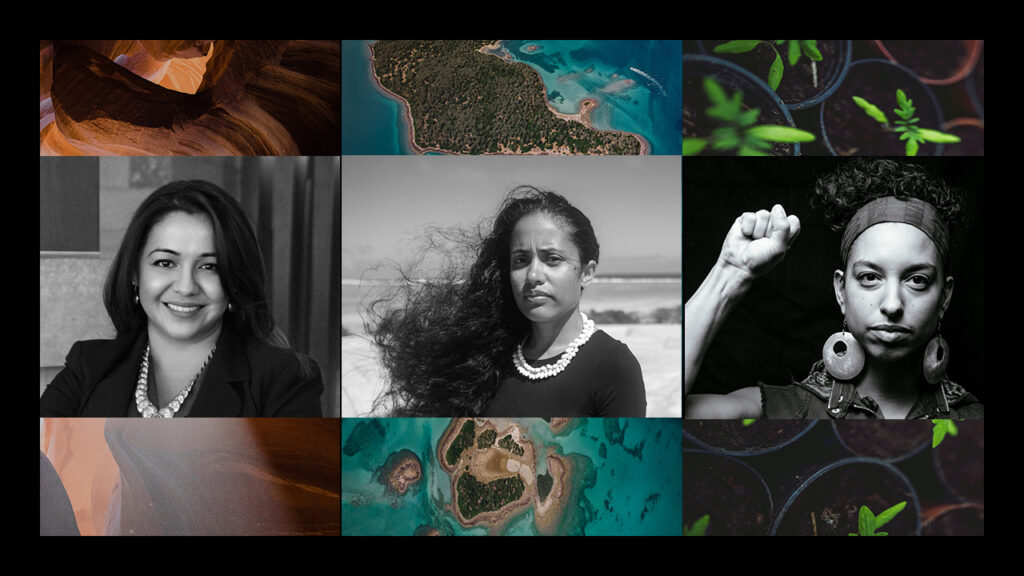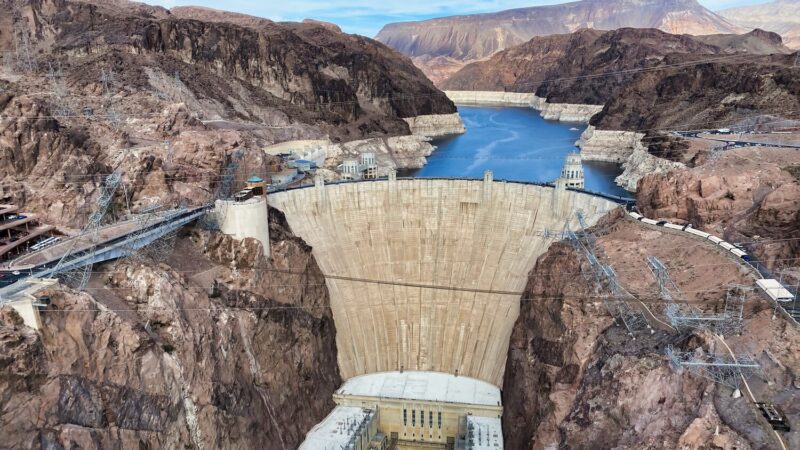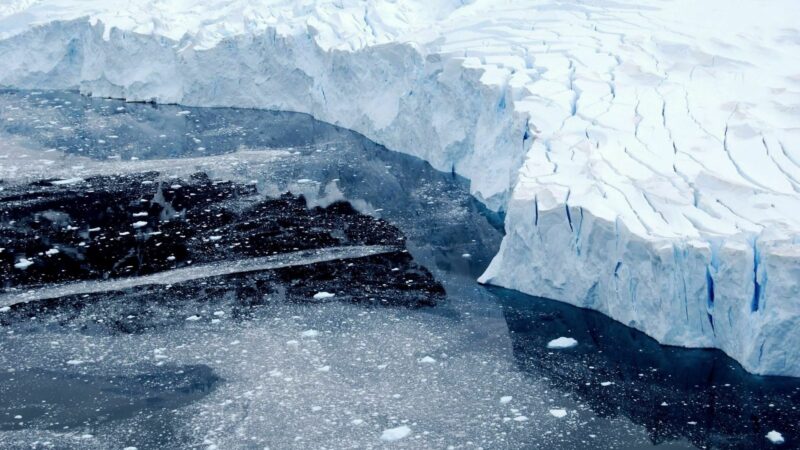
- Sustainable Business
- Air, Food & Water
- Climate Change
- Energy & Technology
- Art & Culture
- Law & Policy
- Environmental Justice
2020 Pritzker finalists: Clara Pratte, Kathy Jetñil-Kijiner, Leah Penniman
The finalists represent a vast range of environmental issues and approaches. All of them are working to address past and ongoing injustices.
In a tumultuous and uncertain year, the creative efforts of three young environmental leaders offer a breath of fresh air.
UCLA Institute of the Environment and Sustainability is proud to announce the 2020 finalists for the Pritzker Emerging Environmental Genius Award, as chosen by a committee of 12 faculty members.
Clara Pratte, Kathy Jetñil-Kijiner and Leah Penniman were selected from a pool of 21 candidates to move on to the final round of judging. The finalists represent a vast range of environmental issues and approaches. Each is working to address past and ongoing injustices.
Clara Pratte helps tribes across the United States with economic development, aiming to alleviate poverty and advance tribal sovereignty. In 2013, she founded Strongbow Strategies, a firm that assists tribal and government clients with business and technical issues. In 2018, she joined the leadership team of Navajo Power to implement energy development models that benefit the community.
“We create large-scale utility projects, and then we take profits and revenue from those projects and reinvest in the community,” Pratte said. “We replace lost revenue from the closing of coal mines and coal plants and provide a capital infusion to communities to shift to a renewable, new energy economy.”
Pratte is tribal engagement director for Democratic Party presidential candidate Joe Biden, and previously served as executive director of Navajo Nation’s Washington, D.C. office. She also worked for two U.S. presidential administrations, four Navajo presidential administrations and a member of Congress.
Kathy Jetñil-Kijiner’s art confronts two existential threats to life on Earth: nuclear weapons and climate change. She was born in the Marshall Islands, where the United States military conducted nuclear weapon tests in the mid-20th century. The tests were a violent tragedy, forcing relocation Marshallese to relocate and causing serious health problems such as burns, birth defects and cancer. The Marshall Islands now also face sea level rise from climate change. Even worse, the water rise threatens to damage a nuclear waste facility causing an even greater environmental problem.
“With nuclear testing, our lives didn’t matter,” Jetñil-Kijiner said. “It’s the same thing with climate change. We’re trying to tell everyone what’s going to happen and the effects we’re already seeing, and they’re saying ‘it doesn’t matter; why don’t you just move?’ ”
Jetñil-Kijiner’s poetry, performances and art installations confront these problems — along with the racism and colonialism at their core. Her work has been featured at the United Nations, the Smithsonian and the Queensland Art Gallery. She currently runs Jo-Jikim, a non-profit dedicated to empowering Marshallese youth, and serves as a climate envoy for the Marshall Islands Ministry of Environment.
Leah Penniman co-founded Soul Fire Food, a community farm centered on Black and Indigenous people of color that aims to end racism and injustice in the food system. Soul Fire Food brings diverse communities together to share skills on sustainable agriculture, natural building, health and environmental justice — and distributes the food they harvest to communities.
Penniman said people who come out to the farm often feel a sense of healing and homecoming that isn’t tainted by slavery, sharecropping or other land-based oppressions.
“We can reclaim aspects of the noble and dignified history of the Black agrarian tradition,” Penniman said. “Many aspects that regenerative and organic agriculture embraces — and we often think about as European or ahistorical — are rooted in the Black tradition. Things like raised beds, permaculture, integrated livestock systems … these are African diasporic technologies.”
The Pritzker Emerging Environmental Genius Award, which carries a $100,000 cash prize, is the first major environmental award to recognize individuals 40 and younger who have shown exceptional promise as champions for the environment.
The finalists were nominated by individuals who already made their mark in the environmental arena. Pratte was selected by Jaime Carlson, a senior advisor on strategy and investments at Softbank Energy. Jetñil-Kijiner was chosen by Susan Alzner, co-founder of shift7. And Penniman received her nomination from Lylianna Allala, climate justice director for City of Seattle’s Office of Sustainability and Environment.
Next, a winner will be selected by a panel of judges: Anousheh Ansari, CEO of XPrize Foundation, Inc.; Kevin de León, councilmember-elect of Los Angeles City Council and former president pro tempore of the California State Senate; Lori Garver, CEO of Earthrise Alliance; and Kara Hurst, head of Worldwide Sustainability at Amazon.
The winner will be announced during a virtual ceremony in December.
Top image: Clara Pratte, Kathy Jetñil-Kijiner and Leah Penniman. | Graphic by Ashley Kruythoff/UCLA.
Published:


